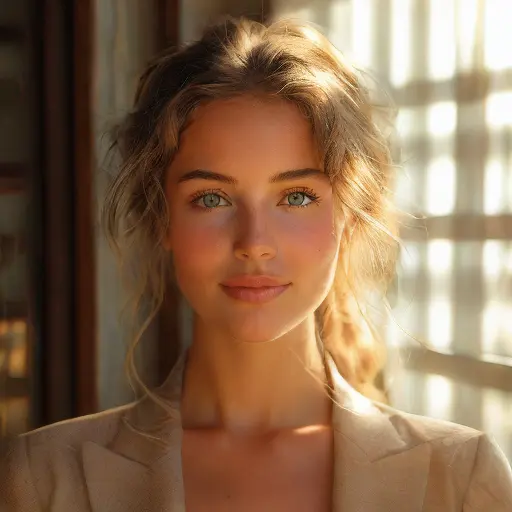ComfyUI Node: UltraSharkSampler
UltraSharkSampler
CategoryRES4LYF/samplers/ultracascade
ClownsharkBatwing (Account age: 314days) Extension
RES4LYF Latest Updated
2025-04-04 Github Stars
0.1K
How to Install RES4LYF
Install this extension via the ComfyUI Manager by searching for RES4LYF- 1. Click the Manager button in the main menu
- 2. Select Custom Nodes Manager button
- 3. Enter RES4LYF in the search bar
Visit ComfyUI Online for ready-to-use ComfyUI environment
- Free trial available
- 16GB VRAM to 80GB VRAM GPU machines
- 400+ preloaded models/nodes
- Freedom to upload custom models/nodes
- 200+ ready-to-run workflows
- 100% private workspace with up to 200GB storage
- Dedicated Support
UltraSharkSampler Description
Specialized node for advanced image processing and generation within UltraCascade framework.
UltraSharkSampler:
The UltraSharkSampler is a specialized node designed for use with the UltraCascade framework, which is available at the GitHub repository https://github.com/ClownsharkBatwing/UltraCascade. This node is part of a suite of samplers that facilitate advanced image processing and generation tasks. The primary goal of the UltraSharkSampler is to provide a robust and flexible sampling mechanism that can handle complex image synthesis scenarios. It is particularly beneficial for AI artists looking to explore creative possibilities in image generation, offering a range of options to fine-tune the sampling process. By leveraging the capabilities of UltraCascade, the UltraSharkSampler enables users to achieve high-quality results with enhanced control over the artistic output.
UltraSharkSampler Input Parameters:
model
The model parameter specifies the machine learning model to be used for the sampling process. This model is the core component that influences the style and characteristics of the generated images. Selecting an appropriate model is crucial as it directly impacts the quality and nature of the output.
cfg
The cfg parameter stands for configuration and is used to adjust the strength of the guidance during the sampling process. It typically ranges from 0 to a higher value, with higher values providing stronger guidance towards the desired output. The default value is often set to balance creativity and adherence to the input prompts.
sampler_mode
The sampler_mode parameter determines the mode of sampling to be employed. Different modes can offer various trade-offs between speed and quality, allowing users to choose based on their specific needs and constraints.
scheduler
The scheduler parameter controls the scheduling of the sampling steps. It can affect the convergence and stability of the sampling process, with different schedulers offering unique advantages depending on the task.
steps
The steps parameter defines the number of iterations or steps the sampler will take. More steps generally lead to higher quality outputs but require more computational resources and time.
denoise
The denoise parameter is used to control the level of noise reduction applied during sampling. It helps in refining the image by removing unwanted noise, thus enhancing the clarity and detail of the output.
denoise_alt
The denoise_alt parameter provides an alternative method for noise reduction, offering users additional flexibility in achieving the desired level of image refinement.
noise_type_init
The noise_type_init parameter specifies the initial type of noise to be used in the sampling process. This can influence the texture and randomness of the generated images.
latent_image
The latent_image parameter represents the initial latent space representation of the image. It serves as the starting point for the sampling process and can significantly affect the final output.
positive
The positive parameter is used to input positive prompts or conditions that guide the sampling towards desired features or styles in the generated image.
negative
The negative parameter allows users to specify negative prompts or conditions to avoid certain features or styles in the output, providing more control over the final result.
sampler
The sampler parameter is a key component that dictates the sampling algorithm to be used. Different samplers can produce varying results, and selecting the right one is essential for achieving the desired artistic effect.
sigmas
The sigmas parameter is involved in the noise scheduling process, affecting the distribution and intensity of noise throughout the sampling steps.
latent_noise
The latent_noise parameter introduces noise into the latent space, which can add variability and creativity to the generated images.
latent_noise_match
The latent_noise_match parameter ensures that the introduced latent noise aligns with specific criteria or patterns, aiding in consistent and coherent image generation.
noise_stdev
The noise_stdev parameter defines the standard deviation of the noise, influencing its spread and impact on the image synthesis process.
noise_mean
The noise_mean parameter sets the mean value of the noise, which can shift the overall tone and balance of the generated images.
noise_normalize
The noise_normalize parameter is used to normalize the noise, ensuring that it remains within a specified range for stable and predictable results.
noise_is_latent
The noise_is_latent parameter indicates whether the noise is applied directly in the latent space, affecting the foundational structure of the generated images.
d_noise
The d_noise parameter is a differential noise component that can be used to introduce subtle variations and details in the image synthesis process.
alpha_init
The alpha_init parameter sets the initial alpha value, which can influence the blending and transparency effects in the generated images.
k_init
The k_init parameter initializes a specific constant or coefficient used in the sampling algorithm, affecting its behavior and output.
cfgpp
The cfgpp parameter is an advanced configuration setting that provides additional control over the sampling process, allowing for fine-tuning and optimization.
noise_seed
The noise_seed parameter sets the seed for the random noise generator, ensuring reproducibility and consistency in the generated outputs.
shift
The shift parameter applies a shift transformation to the image, which can alter its position or orientation in the latent space.
base_shift
The base_shift parameter provides a baseline shift value, serving as a reference point for further transformations during sampling.
options
The options parameter allows users to specify additional options or settings that can customize the behavior of the sampler, offering greater flexibility and control.
sde_noise
The sde_noise parameter is related to stochastic differential equation noise, which can be used to model complex and dynamic noise patterns in the image generation process.
sde_noise_steps
The sde_noise_steps parameter defines the number of steps for applying SDE noise, affecting the granularity and detail of the noise patterns.
shift_scaling
The shift_scaling parameter controls the scaling factor for the shift transformation, influencing the magnitude and impact of the shift on the generated images.
extra_options
The extra_options parameter provides a space for additional, user-defined options that can further customize the sampling process, allowing for unique and tailored outputs.
UltraSharkSampler Output Parameters:
out_samples
The out_samples parameter represents the final generated samples from the sampling process. These samples are the primary output and reflect the culmination of all the input parameters and settings applied during the process.
out_samples_fp64
The out_samples_fp64 parameter provides the generated samples in a 64-bit floating-point format, offering higher precision and detail for applications that require it.
out_denoised_samples
The out_denoised_samples parameter contains the denoised versions of the generated samples, showcasing the refined and noise-reduced outputs for clearer and more polished results.
out_denoised_samples_fp64
The out_denoised_samples_fp64 parameter offers the denoised samples in a 64-bit floating-point format, ensuring high precision and quality for detailed analysis or further processing.
UltraSharkSampler Usage Tips:
- Experiment with different
modelandcfgsettings to find the optimal balance between creativity and adherence to your artistic vision. - Utilize the
positiveandnegativeparameters to guide the sampling process towards desired features and away from unwanted elements, enhancing control over the final output. - Adjust the
stepsparameter to manage the trade-off between quality and computational resources, increasing steps for higher quality results when resources allow.
UltraSharkSampler Common Errors and Solutions:
"Invalid model specified"
- Explanation: This error occurs when the
modelparameter is not set to a valid or supported model. - Solution: Ensure that the
modelparameter is set to a valid model available in the UltraCascade framework.
"Noise seed must be a non-negative integer"
- Explanation: The
noise_seedparameter is set to a negative value, which is not allowed. - Solution: Set the
noise_seedparameter to a non-negative integer to ensure proper random noise generation.
"Mismatch in latent noise dimensions"
- Explanation: The dimensions of the
latent_noisedo not match the expected dimensions for the latent space. - Solution: Verify that the
latent_noiseparameter is correctly configured to match the dimensions of the latent space used in the model.
UltraSharkSampler Related Nodes
RunComfy is the premier ComfyUI platform, offering ComfyUI online environment and services, along with ComfyUI workflows featuring stunning visuals. RunComfy also provides AI Playground, enabling artists to harness the latest AI tools to create incredible art.


